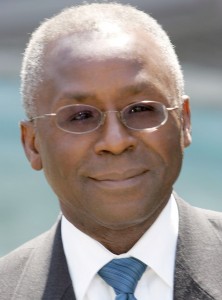Nigeria’s foremost independent scientific body, the Nigerian Academy of Science (NAS), while pledging its support to government in bringing the Ebola virus scourge to an end, believes that it will take the collective effort of all to achieve such. Head of the organisation, Prof Oyewale Tomori, enjoins the public not to panic but rather cooperate with health officials

The Ebola Virus Disease (EVD) is yet to be curtailed in the West African sub-region. It threatens normal life and the economy of countries affected, West Africa, Africa, and the world. Nigeria became part of a trio of countries affected when, on the 20th of July, an infected Liberian flew into the country and, on arrival, had to be admitted to a private hospital for treatment. Nigeria has, since then, been battling to curb the spread of this dreaded disease in the most populous country in Africa.
The Academy, in a bid to urge adequate preparation for such a time as this, had held two workshops on Integrated Disease Surveillance and Response (IDSR). The first, on the 3rd and 4th of August 2010, was for West African participants urging cooperation in West Africa in the surveillance of and response to the spread of diseases in the sub-region. The second workshop was on the 9th of October 2012 for Commissioners of Health, Directors of Public Health, and State Epidemiologists from across Nigeria to discuss how to strengthen IDSR in our country.
The Academy commends the effort so far of all that have been working to protect the country from an uncontrolled spread of the disease. In particular, we salute the effort and courage of the management and staff of First Consultants Hospital whose work in diagnosing and reporting the index case has probably saved the country a bigger calamity. The response of the government, state and federal, has been encouraging as well as the support of international development agencies, and local professional associations and institutions.
The Nigerian Academy of Science hereby notes that much more needs to be done. As the foremost independent scientific body in the country, the Academy wishes to state that:
- The public need not panic but should rather fully cooperate with the appointed health authorities. The EVD is a deadly disease but patients stand a good chance of survival if taken in early for supportive management. The Nigerian record of the number of patients already discharged from the Ebola Treatment Centre strongly supports this. It is pertinent to point out that these persons were discharged having been certified virus-free, hence the need for all to welcome them warmly and discourage stigmatisation
- Controlling Ebola will take the collective effort of all. Government alone cannot do this but will need the cooperation of all different segments of the society
- Ebola control involves critical management of the information in the public domain. The press must be actively engaged as critical stakeholders to ensure accurate and appropriate information dissemination. The media houses must also seek ways to partner with government. This is apart from any IEC materials that should be strategically disseminated
- This is the time for the government and all critical stakeholders to work together. We appeal to the Nigerian Medical Association to consider suspending her strike while the government should do all possible to engage such stakeholders as they are important partners in this fight
- This outbreak of EVD has shown the importance of science and technology as the pillars of any sustainable economic development. Priority must be given to science and technology, and especially to funding research and ensuring a conducive environment for scientists in this Nigeria
In conclusion, the Nigerian Academy of Science pledges its support for the government effort in bringing this outbreak to an end and remains optimistic that Nigeria is capable of controlling this outbreak if the available human and material resources are maximally deployed.
